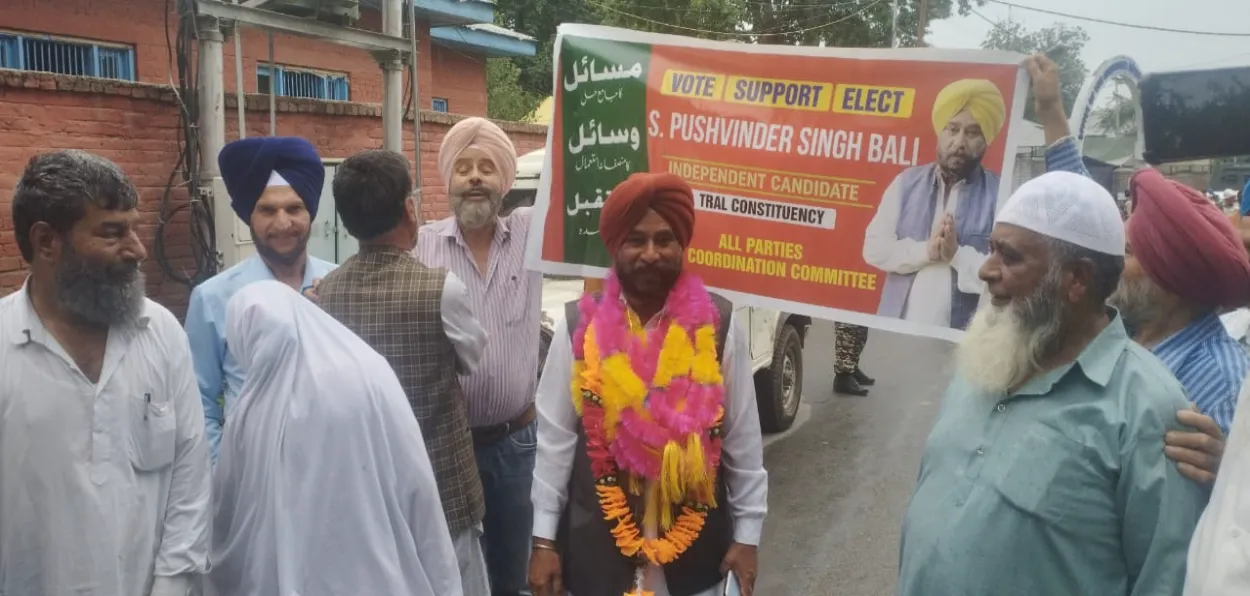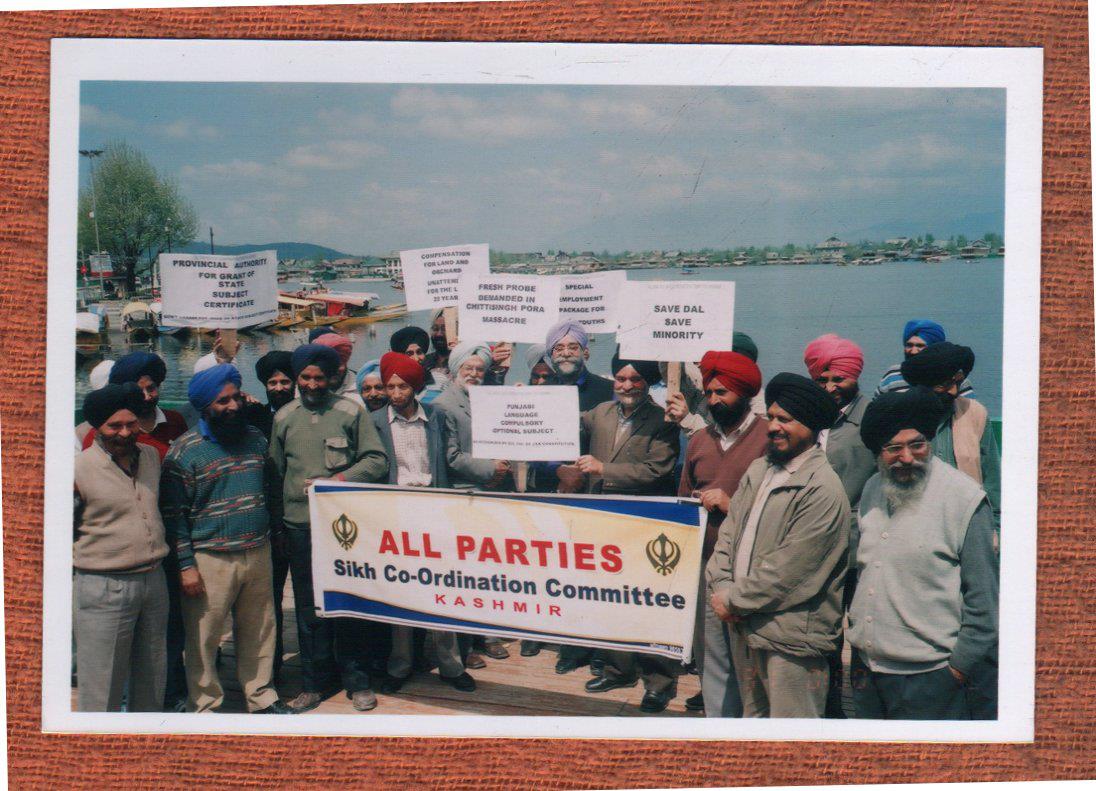
The Sikhs living in Kashmir are fielding independent candidates from among them in the coming Legislative Assembly elections in Jammu and Kashmir to try to get their share in political power and representation in the House.
In 2008, the community leaders have floated the All Party Sikh Coordination Committee (APSCC) which decided to seek the support of the majority Muslim community for winning a few seats for the Sikh candidates.
Speaking with Awaz-the Voice, Jagmohan Singh Raina, APSCC Chairman, said that less than one lakh Sikhs living in 137 villages and towns of Kashmir Valley have always supported the Muslim candidates during the past seven decades.
S Pushvinder Singh became the first APSCC-nominated candidate to file his nomination from the Tral constituency in South Kashmir, which goes to the polls on September 18. The APSCC is likely to announce other Sikh candidates for the constituencies of the Central Shalteng, (September 25) and, Baramulla constituencies (October 1).
“We appeal to all the people to support our candidates, as we have been supporting their candidates”, Raina said. This, he said, would send a positive message about the inclusive culture of Kashmir and negate the propaganda against the Kashmiri people.”
He said the brief to the candidates will be that they have to become representatives of all their electorate and not just Sikhs.
Jagmohan Singh Raina said that the valley’s Sikhs most of whom stayed back even as Kashmiri Pandits (Hindus) faced an exodus with the rise of Islamic insurgency in the early nineties faced many issues that were communicated to the governments during the past two decades.
 Jagmohan Singh Raina (wearing Mauve Pagri) with other leaders of the All Party Sikh Coordination Committee
Jagmohan Singh Raina (wearing Mauve Pagri) with other leaders of the All Party Sikh Coordination Committee
“These issues were taken up at the levels of Prime Minister and Chief Minister and yet these have not been addressed and Sikhs in Kashmir have been ignored.”
“The Kashmiri Sikhs are mostly associated with agriculture and horticulture and many of them migrated from the villages to the towns and Srinagar city due to the lack of facilities during the peak militancy years.”
This resulted in the loss of income to them from agricultural and horticulture produce.
The Sikh community stayed away from the (separatist) processions as the slogans being raised were Islamic, even as the community continued to live with Muslim neighbours in a cordial atmosphere, Raina said.
The APSCC, which is a conglomerate of social, cultural, and political groups, has a list of long pending demands including an inquiry into the killing of 35 Sikhs at Chhatisinghpora in the Anantnag district on March 20, 2000.
Subsequent turn of events in the realm of terrorism across the world confirmed the role of Lashkar-e-toiba, the Pakistan-based Islamic terrorist organisation in the massacre of Sikhs as it was done to embarrass India while the then US President Bill Clinton was visiting.
 Kashmiri voters standing in queues to cast their votes (File)
Kashmiri voters standing in queues to cast their votes (File)
Although inquiries have been conducted into the incident, Raina claimed that no inquiry was conducted into the killings of the Sikhs but into other aspects of the gruesome incident.
“Sikhs have been living in Kashmir for centuries, but did not face difficulties of the kind that they have been facing in the past seven decades”, Raina said. As the Hindus migrated out of the Valley in bulk, the Sikhs lost jobs in private sector and even then they continued to contribute to the economy through their engagement in agriculture, horticulture and transport sectors.
“We appealed to the Center to earmark the share of the Sikhs of the Valley in the 700 jobs given by the Manmohan Singh Government for “non-migrant minorities. However, the scheme (for Pandits, Sikhs, and Christians) had not been implemented for the Sikh community.”
Raina said that the Sikhs were demanding minority community status in Jammu and Kashmir while the community was already categorized as a minority at the national level.
He also lamented that with the abrogation of Article 370 in August 2019, the Punjabi language, which was being taught in educational institutions, had also been removed from the list of approved languages in the school syllabi.
The Sikh body is also seeking concessions on demands that impact people of all communities. These include 50 percent free power to J&K from the power dams constructed by the central PSUs like NHPC on the hydra sources of J&K, safe drinking water from the natural sources in Kashmir, mass job schemes for all communities, and revival of the Exhibition Ground in Srinagar for popularizing the Kashmir arts and crafts among tourists.
After Independence, the Sikhs were given minimum representation in the State legislature even though the erstwhile State was ruled by the Sikhs once upon a time.
Harbans Singh Azad was elected from Baramulla Assembly constituency in 1957 and 1962 from the then National Conference.
ALSO READ; Food blogger Mizan Siddiqui makes Indian foods popular in Canada
S. Surinder Singh, another Sikh leader, was also elected twice from the Gulmarg constituency of Baramulla district in 1967 (then NC) and 1972 (Congress).
